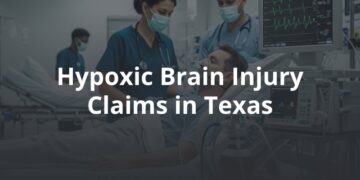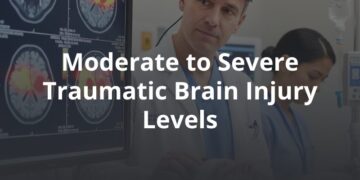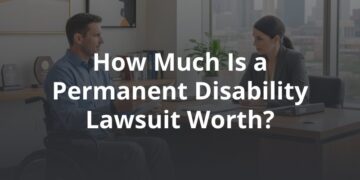When you lose a loved one as the result of someone else’s negligent or careless behavior, you may have the right to bring a wrongful death lawsuit. Under Texas law, wrongful death lawsuits can be filed by the spouse, child, or parent of the deceased.
While nothing can ever replace the pain you experience from losing your loved one, a wrongful death lawsuit can help you to recover damages through a wrongful death settlement. However, deciding to pursue a wrongful death claim can be complicated, so it’s always recommended that you work with an experienced wrongful death lawyer who understands the process and can get you the best recovery possible.
Wrongful death settlements can help to reimburse or compensate you for losses you experienced as a result of your loved one’s death. These losses can be both economic, such as medical expenses and funeral costs, and non-economic, such as loss of companionship and pain and suffering. You may also be able to recover damages such as lost earnings and future wages, lost inheritance, and even punitive damages.
The amount of money you may be able to recover in a wrongful death case depends on a variety of factors, including who is determined to be at fault for the accident, applicable insurance policy limits, whether the driver was working at the time of the accident, and the salary of the deceased prior to the accident.
Determining a settlement amount can be complicated and require extensive investigation and negotiation. Without the help of a wrongful death lawyer, you may be tempted to take a lowball offer from the other party’s insurance company so you can move on from your tragedy. An experienced personal injury lawyer can manage the wrongful death claim process so that you end up with a fair and comprehensive settlement.
Paying Out Wrongful Death Settlements
Once a wrongful death settlement is reached, either the insurance company or the at-fault party themselves must pay you the designated amount. There are two possible ways that your settlement can be paid out to you:
- Lump-sum payment. With a lump-sum payment, you receive all of the damages due to you at once. This includes all economic and non-economic damages that were determined during settlement negotiations. Getting a lump-sum payment allows you to pay any large expenses, like medical bills and legal fees, right away instead of delaying payment or accruing interest. It also has the benefit of not drawing out the process of receiving payments and paying off debts.
- Structured settlement. If you opt for a structured settlement payout, you will receive regular, ongoing payments on a designated schedule. These payments are likely to be monthly, but when they are distributed depends on the terms of your settlement. With a structured settlement, it will take longer to be paid all of the compensation due to you, and you may not be able to pay off your expenses as quickly as you’d like.
How your wrongful death settlement is paid out often depends on the at-fault party. An insurance company with deep pockets will be in a better position to pay out a lump sum than an individual driver who needs time to come up with the funds to pay the settlement amount.
Are Wrongful Death Settlements Taxed?
Wrongful death settlements are compensatory, which means that any money you receive is meant to cover the cost of both economic and non-economic damages. But that doesn’t mean they can’t be taxed.
While the IRS doesn’t typically tax compensatory damages in a wrongful death settlement, it may tax certain portions of the settlement. For example, if the settlement was awarded to the estate of the deceased, it may be taxed through the probate process.
If you are awarded punitive damages as part of your wrongful death settlement, those are taxable by the IRS as “other income.” As a form of punishment, punitive damages are awarded when grossly negligent or reckless behavior caused the accident that resulted in your loved one’s death.
Who Can Be Awarded a Wrongful Death Settlement?
Not just anyone can bring a wrongful death settlement in Texas. State law dictates that only the surviving spouse, children (including adopted and adult children), or parents can bring a wrongful death lawsuit.
If any of these parties fails to bring a lawsuit within three months of the death, then the deceased’s estate or a personal representative can file a lawsuit on behalf of the estate.
How Are Wrongful Death Settlements Distributed?
A wrongful death settlement may be paid out to more than one party, and how a settlement gets distributed depends on the parties involved. For instance, a spouse is likely to receive more than a surviving child, given the nature of the relationship.
A child under the age of 18 is not legally permitted to inherit or receive compensation for a wrongful death case, which means that a trust must be set up to oversee the settlement until the child turns 18. Likewise, an incapacitated adult may also need to have a trust manage their compensation.
In many instances, debts owed to hospitals and other providers are paid out first before the remaining settlement amount is distributed.
Wrongful death lawsuits often involve several parties and many questions about how to allocate the settlement. A wrongful death lawyer can help ensure that your interests are represented and that you receive a fair portion of the settlement.
How FVF Can Help
If you are considering filing a wrongful death lawsuit, working with wrongful death lawyers near you can help you get the settlement you deserve. At FVF Law, our experienced attorneys have handled hundreds of wrongful death settlements, and we are confident we can help you get a fair settlement. For a no-cost, no-pressure consultation with a wrongful death lawyer in Austin, contact us today.








